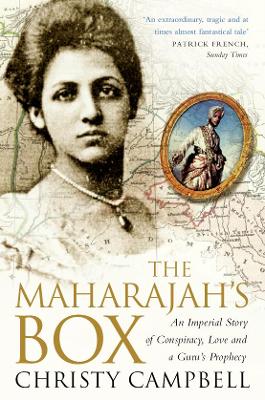Reviewed by pamela on
Reading updates
- Started reading
- 10 June, 2019: Finished reading
- 10 June, 2019: Reviewed

The colourful narrative history of Duleep Singh, the last Emperor of the Sikhs and protege of Queen Victoria, and his bizarre attempts to regain his kingdom of the Punjab from the British Empire in the late 19th century.
In July 1997 the Swiss Bankers' Association, under international pressure to atone for wartime compliance with Hitler's Germany, published a list of over 1,700 'dormant accounts', untouched for over fifty years. The names were supposedly those of Jewish victims of the Holocaust, but among them was an Indian princess, 'last heard of in 1942 living in Penn, Bucks'.
Intrigued, Christy Campbell,...
Read more
The colourful narrative history of Duleep Singh, the last Emperor of the Sikhs and protege of Queen Victoria, and his bizarre attempts to regain his kingdom of the Punjab from the British Empire in the late 19th century.
In July 1997 the Swiss Bankers' Association, under international pressure to atone for wartime compliance with Hitler's Germany, published a list of over 1,700 'dormant accounts', untouched for over fifty years. The names were supposedly those of Jewish victims of the Holocaust, but among them was an Indian princess, 'last heard of in 1942 living in Penn, Bucks'.
Intrigued, Christy Campbell, a journalist on the Sunday Telegraph, started to search the records, and so uncovered the remarkable story of how Maharajah Duleep Singh, the last Emperor of the Sikhs, was made by the British - as a nine-year-old in 1849 - to sign away his kingdom of the Punjab and give Queen Victoria the Koh-i-Noor diamond (the most celebrated diamond in the world, and the jewel in Britain's Crown).
Duleep Singh, a virtual prisoner of Queen Victoria in England, began to dream of regaining his kingdom, and so embarked on a series of adventures (involving Russia and the 'Great Game' of Central Asia) before finally begging Victoria's forgiveness. He had six children and died in 1893. Today the Sikhs still claim their inheritance, including the Koh-i-Noor and the now-divided Punjab.